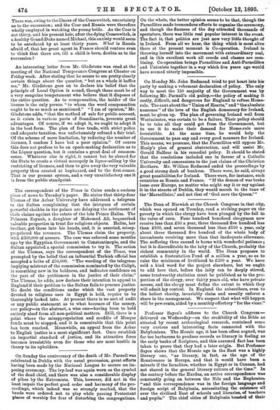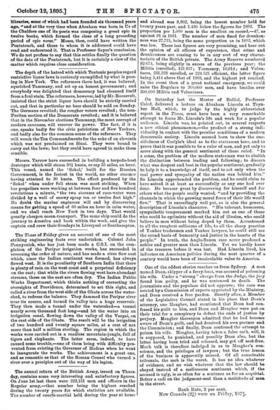Professor Sayce's address to the Church Congress— delivered on Wednesday—on
the credibility of the Bible as attested by recent arch mological research, contained some very curious and interesting facts connected with the Babylonians. The Mosaic age, it has been often argued, was far too barbarous to produce records so literary in feeling as the early books of Scripture, and this assumed fact has been taken to prove that they had a later origin. But Professor Sayce shows that the Mosaic age in the East was a highly literary one, "as literary, in fact, as the age of the Renaissance in Europe, and that it would have been a miracle if the Israelites, whether in Egypt or in Canaan, had not shared in the general literary culture of the time." In the century before the Exodus, an active correspondence was constantly going on between the Nile and the Euphrates, "and this correspondence was in the foreign language and foreign script of Babylonia, necessitating the existence all over the civilised East of schools and libraries, of teachers and pupils." The chief cities of Babylonia boasted of their
libraries, some of which had been founded six thousand years :ago, "and at the very time when Abraham was born in Ur of the Chaldees one of its poets was composing a great epic in -twelve books, which formed the close of a long preceding period of epic verse." Moses, then, could have written the Pentateuch, and those to whom it is addressed could have read and understood it. That is Professor Sayce's conclusion. We do not profess to say that this settles finally the question -of the date of the Pentateuch, but it is certainly a view of the matter which requires close consideration.



















































 Previous page
Previous page